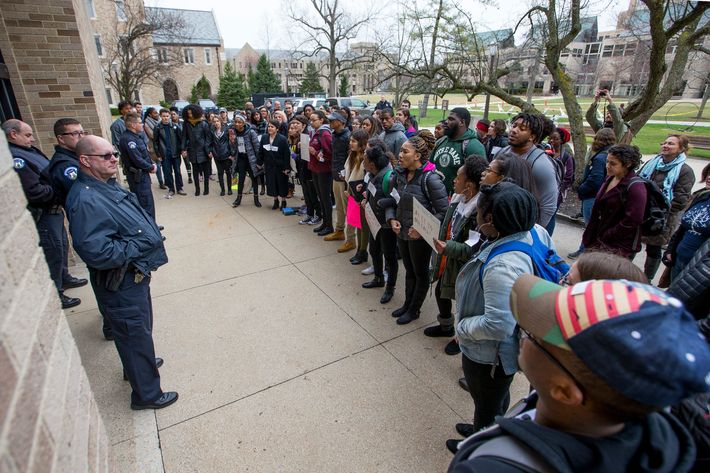
Whenever I was asked last summer if I was for Brexit, I said no — but it would be a close call. The usual response to my mild equivocation was to look at me incredulously. It’s become an article of faith among my friends across the political spectrum that Brexit is quite obviously a disaster, an incomprehensible, xenophobic act of self-harm on Britain’s account. That unalloyed view seems to me to be a failure on the American media’s part. They’ve never really explained why a sane Brit might have voted to leave the bloc. So let me suggest one.
Or, rather, let my brother. He and my dad voted to leave, and I asked my brother to explain. It was really quite simple, he said. He believed that immigration into Britain was happening at too fast a pace. He saw overcrowded schools and hospitals, a groaning transportation system, an acute housing shortage, and a country that had been transformed so fast many of its inhabitants began to not recognize it at all. He wanted immigration to come down to more manageable levels — and, in the last election, he therefore voted Conservative, because that’s what the Tories promised. They pledged to bring immigration down to the tens of thousands a year. But after a year in office, the immigration statistics showed no drop at all: Over 600,000 migrants were still entering the U.K. per year, with close to 300,000 from the EU, and there was no end in sight. That number was completely unprecedented before 2014, but had stayed at that level for three years in a row. For a comparison, EU immigration into Britain was a mere 44,000 in 1992 and 66,000 in 2003.
When David Cameron was asked why he had not kept his promise, he essentially argued that he couldn’t. Being in the EU meant no control over European migration to the U.K. And so my brother concluded that, because of the EU, it made no difference which party he voted for. On a key and legitimate issue of public concern, immigration levels, centuries of English democracy counted for nothing. My brother had held the quaint view that if you dislike the policies of one party in government, you can always vote them out to get an alternative. But he soon realized that, on most issues concerning the EU, his vote counted for nothing. In other words, he voted to leave the EU because he believed in democracy. It’s not an accident that the winning slogan of the Leave campaign last year was “Take Back Control.”
They had a point. Democracy works best at the level of the nation-state. Just ask the Greeks, now neck-deep in an EU-mandated austerity program, and denied a chance to devalue their own currency, and restore their economy, because they joined the euro. And this, of course, is also the left-wing critique of the EU. Its neoliberal economics and austere Central Bank stymie any national attempt to control trade, currency, interest rates, immigration and thereby the economy. So left-of-center governments have no choice but to bow down to free-market, pro-austerity policies imposed by Brussels. That is one reason that Margaret Thatcher, despite profound hostility to a European super-state, nonetheless was an enthusiast for the single tariff-free market. It was a way, in her view, to keep socialism and social democracy permanently in their place. Here’s lefty professor Alan Johnson, incensed by how Brussels controls democratically elected national governments:
The crisis of the eurozone from 2010 even led to the removal of elected governments and their replacement with compliant technocrats—by the troika of the EU, the European Central Bank, and the IMF. The markets were kept happy, and the euro was kept intact, but the price was high: democracy was ‘discarded like unwanted clothing’ as the BBC Europe editor, Gavin Hewitt, put it in his valuable book The Lost Continent. More: the European welfare state was eroded; deflation, mass unemployment, poverty, and ugly and sometimes violent political populisms disfigured the European landscape.
The EU is, from the perspective of history, a wonderful thing. It has kept the peace; it’s thrilling to be able to travel across the Continent without a passport. But in the last 20 years or so, it has massively overreached, leaving many Europeans with a serious democratic deficit. It has a “parliament,” but barely anything is decided there. The European Commission is where the action is — and its commissioners are selected by member governments, not directly elected. The European Central Bank controls interest rates — and it’s controlled by the Germans. Changes to the EU’s treaties — always in a pro-federal direction — have been relentlessly imposed from above. A handful of countries have actually held referendums to acquiesce to new Treaty changes, but every time, the results have either been papered over, or the referendum has been repeated so that the people eventually get the decision right. (The Irish, for example, first voted to reject the Lisbon Treaty in 2008. They had to repeat the referendum a year later and got a yes. Most other countries never gave their citizens a voice at all.)

For a fiercely independent island like Britain, this Brussels hegemony would always rankle. The Brits didn’t defeat Germany in the Second World War only to have Germany control the British economy decades later. But unprecedented mass immigration from the Continent fueled the discontent. Imagine if NAFTA mandated that every Mexican and Canadian citizen had a right to live and work in the U.S. — and the Congress had no ability to say no! But that was what Brits have now dealt with for decades.
And unlike America, Britain, a small island, does not have a long history of mass immigration. Far from it. For centuries its population remained almost unchanged. In point of fact, Britain now gets more immigrants in a single year than it did in the entire period from 1066 to 1950. But when Prime Minister David Cameron asked Angela Merkel for some kind of brake on this unprecedented influx, he was told to go jump in the Channel. Meanwhile, mass immigration from non-EU countries has already transformed British culture at an extremely un-British pace. The most popular name for baby boys in Britain is now … Muhammed. It turns out, as Ben Schwarz elaborates, that there will not always be an England, at least an England as anyone before the 21st century would have understood it.
Hence the nationalist uprising. Leaving the EU, it seems to me, is still a bad solution to the erosion of traditional national identity. It will be a blow to the British economy, and it also threatens the United Kingdom itself, as pro-EU Scotland now wants a new referendum on secession. My own view is that Britain had the best of all EU worlds before Brexit: It had the free market to sell its goods in, but was exempted from the euro, parts of the Lisbon Treaty, and the European bank. The Brits could have argued for more national autonomy from within the bloc, and maybe could have gotten Merkel to budge. More to the point, Brexit does not even guarantee that immigration levels will decline from now on, as Theresa May was forced to concede last Wednesday in the Commons. It will have no effect on non-EU immigration, for example, which is about as high as that from the EU. And several sectors in the economy — such as health care — desperately need EU immigrants, and exceptions are going to be made in the tortuous divorce proceedings that began this week. When I point this out to my brother, he shrugs. At least immigration will henceforth be a matter of British policy, he notes, not EU diktats.
It was democracy that was on the ballot in the Brexit referendum. In some ways, it seems admirable that 52 percent of Britons put democratic accountability before their economic interests — even if they made the wrong decision. It takes pluck to do something like that. And the polling suggests that very few Brits have had second thoughts.
Should the Dems filibuster Gorsuch? I get the case. It’s important not to acquiesce to the Republican refusal to give Merrick Garland a hearing. Gorsuch is a classic judicial conservative in the mold of Scalia. He was at times evasive in the hearings. The Republicans so abused the filibuster for Obama’s judicial picks that Harry Reid had to nuke it. Payback is an important tool so as not to incentivize future GOP obstructionism. And so on.
And yet, and yet … removing the filibuster for Supreme Court nominees — which could well happen if the Democrats refuse to give him enough of the 60 votes required — is a worrying thing. It intensifies partisanship and polarization. It shreds a norm that both presidents and Congress have long obeyed. It politicizes the judiciary in a way that undermines liberal democracy at a time when liberal democracy is under considerable strain. It further erodes the civility that is critical for the American Constitution to work. It’s something that, once done, is very hard to restore. Yes, I’m a conservative on these matters — with a small c.

But from a purely partisan Democratic point of view, a filibuster is also not so clearly a good idea either. Gorsuch’s seat was occupied by Antonin Scalia. Almost any nominee to replace him would be less extreme. (We’ve gone, for example, from Scalia’s bilious dissents in defense of sodomy laws to Gorsuch’s acknowledgment of gay marriage equality as a settled precedent.) Gorsuch is also one of the best on the Trump list of SCOTUS picks. The Court’s basic contours would not be much changed. But in the event of a Ginsburg or Kennedy or Breyer vacancy, the stakes would be much, much higher. Better, it seems to me, to save the ultimate obstruction for a nominee who could shift the entire Court toward the right.
I doubt the filibuster will survive, given the mood of the Democratic base and the partisanship of the GOP. But I’m quite sure the norms of liberal democracy will take yet another hit. At some point, the stability of our political system should matter more than ideology.
Here’s another cat among the usual pigeons. In the renewed debate about free speech on campus, it has become de rigueur to argue that Charles Murray is a foul racist who believes, according to the New York Times, that African-Americans are “inferior” to whites — but that free speech should extend even to raging bigots and pseudoscientists. But is the book racist hate speech? I actually read The Bell Curve twice in order to get to the bottom of this charge. And it is, to my mind, simply wrong.

I recommend three pieces that elucidate what was actually in the book (that most of its critics have not read). Here’s an independent review of the book, which shows that Murray and Richard Herrnstein were reiterating what is simply undeniable and mainstream among experts in the field. Here is Murray’s own response to the widely disseminated smears published by the Southern Poverty Law Center. And here is a 1996 report from the Board of Scientific Affairs of the American Psychological Association that examined, in the wake of the original controversy, whether Murray and Herrnstein were outside the mainstream science on intelligence. It’s called “Intelligence: Knowns and Unknowns.” It was written by experts from Yale, Howard, Cornell, and Emory, among others.
I still believe that the chapter on race was unnecessary for the thesis of the book. But I don’t think it was racist or pseudoscience. If you have an opinion on The Bell Curve, see if you keep it after reading these three pieces.





























